-
Telling Time: Simple Ways to Reinforce Lessons at Home
Telling time is an important skill, but it is becoming increasingly challenging for children, who often have few opportunities outside of their early education center to practice. If your child is in preschool or Kindergarten in Pembroke Pines and you want to help him or her master time-telling skills, these activities will help you reinforce the lessons that they are getting at school.
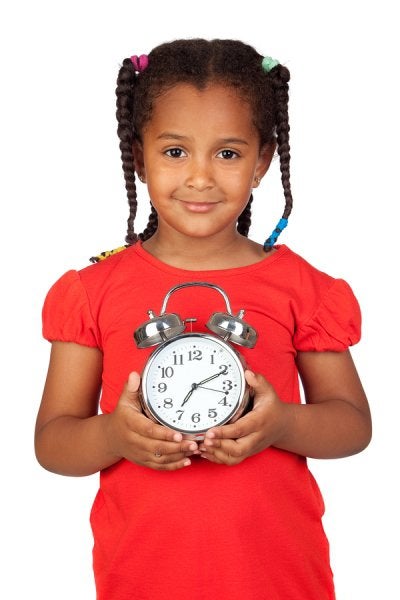
Go Analog
With digital clocks everywhere from your oven to your TV box and smartphone, kids may not understand why they need to learn time. If your house is one of the many homes that only has digital clocks, invest in a few analog clocks that your child can use to practice telling time at home. Use the clocks when you need to know what time it is, and talk your child through how you are reading the clock. Encourage your child to look at those clocks as well, and as his or her skills in telling time grow, he or she can look at the analog clock, tell the time, and then check it against the digital clocks.
Practice Skip Counting
Counting by fives is a helpful skill to have when it comes to telling time. If your child has his or her numbers mastered, start working on counting by fives. Keep practicing until your child can easily count to at least 60 by fives, and then start applying that kind of counting to telling time. This lets your child see how time is counted off in five-minute increments and can help him or her get a better understanding of reading the clock.
Use Timed Activities
Give telling time real-world applications by having your child time his or her favorite activities. For instance, you may tell him or her that you are going to leave for the park in 10 minutes, and ask your child to tell you where the hand will be on the clock. Tying time concepts to things your child is doing will incentivize him or her to keep working on time skills.
-
Essential Tips for Library Visits with Toddlers
Going to the library is a great way to get your toddler excited about reading and to support the activities he or she is doing at his or her early childhood education center in Pembroke Pines . Library visits can be a fun and positive experience for your toddler and a good way to get him or her engaged in activities that don’t involve the television or your mobile device. Make the most of every library visit with this advice.

Set the Expectations
Before you go to the library, tell your toddler how you expect him or her to behave. Through being a student at an early learning center, your child will have practice following the rules and knowing when to be quiet and when to play, so put these skills to use in the library. Practice talking in a soft voice, and tell your child that he or she can only take one book off the shelf at a time. Remind your toddler to stay with you at all times. When you go into the library with these rules in place, you can focus on enjoying your visit instead of chasing your little one around.
Get Excited About Exploring
The library is full of wonders for your child, so let him or her have fun exploring every nook and cranny. As long as he or she sticks by you, let your child wander the aisles, look at the displays, and enjoy the toys and activities in the kids’ section. Don’t limit visits to just looking at books or just sticking to one section of the building. Getting your toddler excited about the library will get him or her excited about reading for life.Check Out Books
Your toddler will love the opportunity to pick out books to read together at home. Set a limit and help him or her browse, making selections together. Involve your child in the checkout process, and then use the opportunity to teach him or her about caring for books properly. Find a space at home that is just for library books, so they don’t get mixed with your own collection.
-
The Benefits of Pre-Kindergarten
When your child is about four years old, it’s time to enroll him or her in a pre-kindergarten program in Pembroke Pines . Pre-kindergarten introduces children to structured learning activities within a classroom environment. Not only do they learn essential pre-academic skills, pre-k students also grow in emotional and social maturity. If your child has already been attending preschool, then the transition to pre-kindergarten will be a natural and easy one to make.
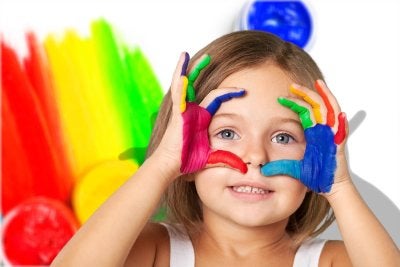
Independence
For parents of four-year-olds, it’s often difficult to accept that their little ones are developing their own independent identities. In fact, many parents often have a harder time adjusting to separation than their children do. Spending time in a school environment is an important step in every child’s development. Pre-kindergarten allows children to learn how to make their own choices (within reason) and thrive while away from home for a little while.
Socio-Emotional Maturity
Enrolling your child in a pre-kindergarten program will allow his or her socio-emotional intelligence to grow by leaps and bounds. All children need the life experiences that come from functioning as part of a small community. Through trial and error, and gentle guidance from the teacher, your child will learn how to interact with others in appropriate ways and how to enjoy group work as well as independent work. Your child will develop critical friendship skills like taking turns and sharing, and important classroom skills like how to capture the teacher’s attention appropriately. Being a member of a classroom community enables your child to practice his or her verbal communication skills with peers and adults.
Academic Foundation
Another primary benefit of enrolling your child in a pre-k school is to give him or her a solid foundation for lifelong learning. At this critical stage in a child’s development, he or she truly wants to learn. Your child is curious about the world and how it works, and pre-k nurtures this curiosity to encourage your child to develop a lifelong love of learning. Of course, your child will also learn crucial pre-academic skills that will prepare him or her to excel in kindergarten, first grade, and beyond.
-
Selecting a Kindergarten for Your Child
As more choices become available, parents are finding it increasingly difficult to settle on a school for their children. Are you searching for the ideal kindergarten in Pembroke Pines ? If so, then continue reading for tips on choosing the best one for your child and your family’s needs.
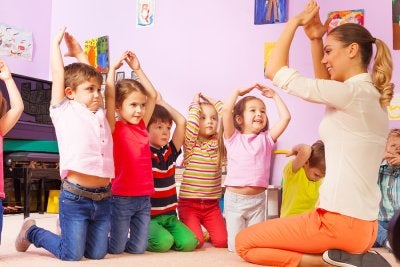
Discover Your Options
To begin the process of selecting a kindergarten for your child, start by researching what schools are available in your area. Then, look at the websites of any schools that you are interested in, ensure that the information posted there is up to date, and read any unbiased parent reviews that you can find. If possible, talk to friends, family, and neighbors that have children enrolled in kindergarten and ask them for their opinions.
Consider Your Needs
The next step in this process is to think about the needs of your family and to identify the schools which best support them. Some examples include the school’s proximity to your home or work, its transportation system and bus schedule, and its enrollment cost. Weighing in these factors can be essential for selecting a kindergarten and school that works for your family long-term.
Study the Program
What a school can offer for your child can do a great deal in helping you decide on a kindergarten. Do you want your child exposed to second languages, the arts, or other alternative programs? Also, consider how much emphasis the school puts on physical education and discover if they feature a gymnasium and playgrounds. Finally, study the kindergarten’s curriculum to get an idea of the education to which your child will be exposed.
Meet the Teachers
In many cases, meeting your child’s potential educators can be the easiest way to come to a decision about what kindergarten is best for her needs. Considering that your young child will be away from you for long periods, it’s important to choose a program whose teachers you feel comfortable with and are nurturing towards the students. Make an appointment with any school you are interested in to give yourself a chance to meet the principal and kindergarten teachers.
-
The Importance of After School Activities
Participating in a variety of activities offers kids several benefits. If you’re thinking about enrolling your child in an after school program near Pembroke Pines, then continue reading to learn about the importance of these activities for children.
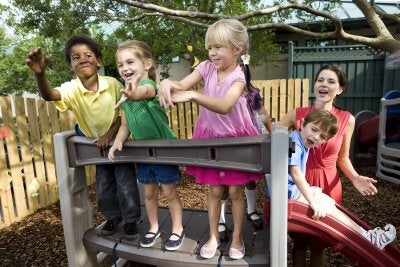
Developing New Interests
As your child continues to grow and develop, you may notice that she is embracing new hobbies and likes. When you enroll your child in after school programs, this gives her a chance to pursue sports and activities that interest her. At the same time, giving your child the opportunity to begin a program of her choice allows her to try something new and develop a diverse set of interests. Whether it’s soccer, drama club, or band, enrolling your child in programs like these can give her a chance to discover a passion that she can continue to pursue in the future if she desires.
Building Self-Esteem
While her academic classes can encourage teamwork, socialization, and confidence, after school programs can often do this to a greater extent and in a more relaxed setting. If your child tends to be shy, then enrolling her in after school activities may provide her with the outlet that she needs to interact more with others and build her self-esteem.
Improving Academic Performance
While you may not associate sports and other programs with your child’s grades, recent studies have identified a correlation between better academic performance and the work and behavior habits that develop because of participation in after school programs.
Strengthening College Applications
If your child is still young, then you may not be thinking as far ahead as college. However, no matter her age, fostering interests and passions now is a great way to help ensure that she continues to participate in activities through high school. No matter the type of after school programs that she ends up pursuing, being able to add these to her college application is an excellent way to improve her chances of acceptance.
-
A Quick Look at Our Summer Day Camp
At Tanglewood Academy, our summer day camp is designed to help kids get the most out of their summers while giving parents the opportunity to maintain their own responsibilities without worrying about child care and keeping kids entertained. Like our after-school programs, Tanglewood Academy’s summer camps in Pembroke Pines are built around fun learning activities to keep bodies and minds on the go during the summer months.
Our summer day camp features benefits like low counselor-to-student ratios, educational field trips, and plenty of bonding opportunities for kids to positive friendships that can last for years to come. Both physical and cognitive activities are on the agenda daily, so kids get a chance to work out their bodies and their minds. The skills and relationships kids build at our summer day camp will benefit them both in and out of the classroom when school is back in session. Talk to a camp counselor or other staff member to find out if Tanglewood Academy camp could be right for your child.
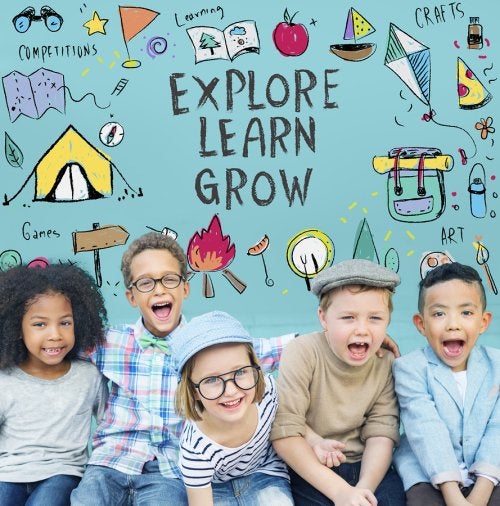
-
Activity Ideas for Parents of Toddlers
Play is an essential part of toddler education, both in school and at home. Your toddler’s daycare will keep him or her occupied with a variety of play activities that also boost learning throughout the day. For activities for toddlers that give them the same learning experiences at home, watch this video.
Play teaches toddlers everything from colors and shape to fine motor skills, so try a variety of activities to keep your little one entertained. Puzzles are great for child development because they help toddlers practice a number of skills. Building forts, finger painting, and playing with balls are also fun and educational ways to spend time with your toddler.
-
Common Learning Activities for Pre-K Students
Pre-kindergarten, or pre-K is an extremely valuable transition year between early education and kindergarten that helps children prepare for the demands of the kindergarten classroom. Pre-K programs are voluntary and help children develop a love of learning that can last them a lifetime. If you are thinking of enrolling your children in pre-kindergarten in Pembroke Pines , here is what you need to know about what happens in the classroom.
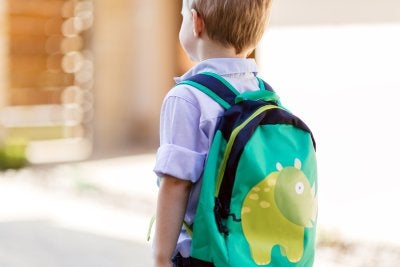
Self-Help Skills
When your child transitions to the big-kid world of kindergarten, he or she will be expected to be self-sufficient in a number of different ways. Although teachers will always be available to help, kids entering kindergarten benefit from knowing how to tie their shoes, zip and unzip their coats, and open the food in their lunchboxes. They should also know how to use their scissors, uncap their clue, and hold their pencils. Learning these self-help skills also gives kids a chance to practice their fine motor skills. These are also great things for parents to practice with their pre-kindergarten aged kids at him.
Letters and Numbers
Letter and numbers are a big part of kindergarten and pre-k. Kids in pre-Kindergarten will get plenty of practice recognizing and writing numbers and letters, which they will continue to learn and apply in kindergarten as they learn to read. Letters and numbers will be practiced in a number of different ways, especially through play.
Physical Play
Physical play has a long list of purposes in pre-k classroom. First, different types of physical play helps kids practice their gross and fine motor skills. Likewise, different play activities help kids learn other lessons, including counting, letters, and other pre-literacy and pre-math skills. Last but not least, physical play helps pre-k students work on their social skills. Through play, they have to learn to cooperate with classmates, respect and follow the rules, and compromise on disputes. Through play, they also get to practice winning and losing, which will help them throughout their school lives.
-
How Young Children Learn Best
Educators know more than ever about early childhood development and how to leverage developmental stages to build the most effective learning programs possible. Now, a preschool curriculum can be built not just around what young children need to learn but how they can learn it as quickly and effectively as possible. Your preschool child’s learning center in Pembroke Pines has structured their classrooms around these principles about young children’s learning styles.
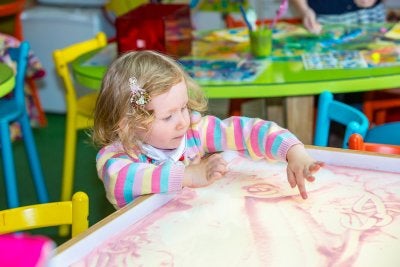
Learning Through Play
Play is one of the most important parts of learning for young children. What may seem like just a fun activity can actually be teaching your child vital math or language skills while giving him or her a chance to practice his or her motor skills. Everything from cooking to playing with blocks to singing songs gives young learners an opportunity to learn or practice new skills. Play also keeps kids moving and prevents the frustration and wandering attention that can occur for young people with sitting for extended periods of time.
Building Lessons on Each Other
Young learners do best when they get to focus on one skill at a time. This means breaking down lessons into small pieces that can easily build on each other. For instance, teaching young children to sing the alphabet doesn’t mean that they know and recognize all of those letters, but learning that song simply as a song is helpful when it is time for children to start learning letters. The song will them have a new, more concrete meaning.
Making Mental Pictures
Preschoolers in particular place the information they learn in context by forming pictures of what they are learning in their heads. For instance, if a young child learns how complete a puzzle, he or she will catalog mental images of their process that can be replayed like a movie later so that he or she can repeat the process. Young learners need these visualizations to help them retain knowledge and apply it later.
-
A Look at Our First Grade Programs
At Tanglewood Academy , we offer challenging early childhood education programs for kindergartners, preschoolers, and first graders in Pembroke Pines. Our comprehensive first grade program focuses on teaching children first grade math, first grade reading, geography, American history, science, economics, and creative expression. Because our first grade program is so diverse, your child will receive an early childhood education that will better prepare him for his future schooling.
Our early education program for first graders is designed to foster both academic and life experiences. We encourage parent and community involvement in the school and the early childhood education programs. Our early childhood learning center is home to a small population of kindergartners, preschoolers, and first graders of diverse backgrounds, ethnicities, cultures, and religions. Your child will learn how to communicate and work with many different children.
We have a very low student-to-teacher ratio, so each child in our first grade classroom receives individualized attention and instruction. We can accommodate a variety of learning styles, and strive to ensure that your child’s needs are met. We also offer after school programs and summer camps for kids that extend their learning period and encourage the growth of important child development skills.

RECENT POSTS
categories
- Uncategorized
- Early Learning Center
- Pre-K
- Children
- Child Care Center
- Preschooler
- Preschool Blog Category | Tanglewood Academy
- Preschool Lunch
- Tanglewood Academy
- After-School Program
- Toddler School
- Early Childhood Education
- preschool activities
- pre-kindergarten
- childhood education
- pre-kindergarten programs
- Children’s education
- enrichment opportunities
- Kindergarten
- Nurturing Education Environment
- Toddler Care
- Child Separation Anxiety
- Toddlers
- Summer camp
- summer activities
- VPK
- Voluntary Pre-K
- Outdoor Activities
- Smart Strategies
- Tie Shoes
- Snacks
- Physical Activities
- Education
- Enrichment Activities for Kids
- Early Education Activities
- Preschool Curriculum
- Classroom Learning
- APPLE accreditation
- Language Comprehension
